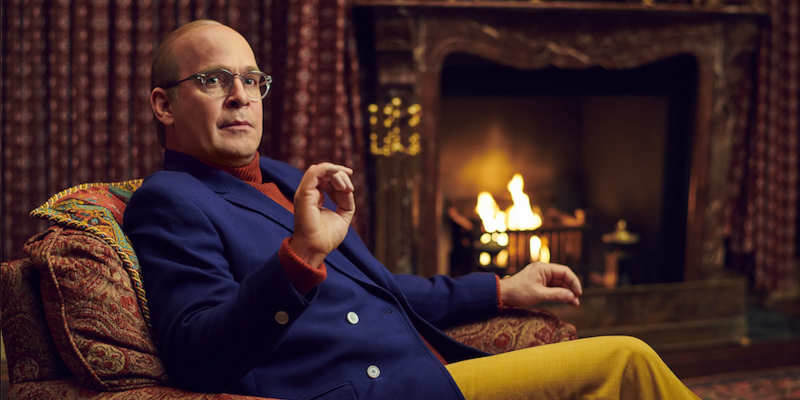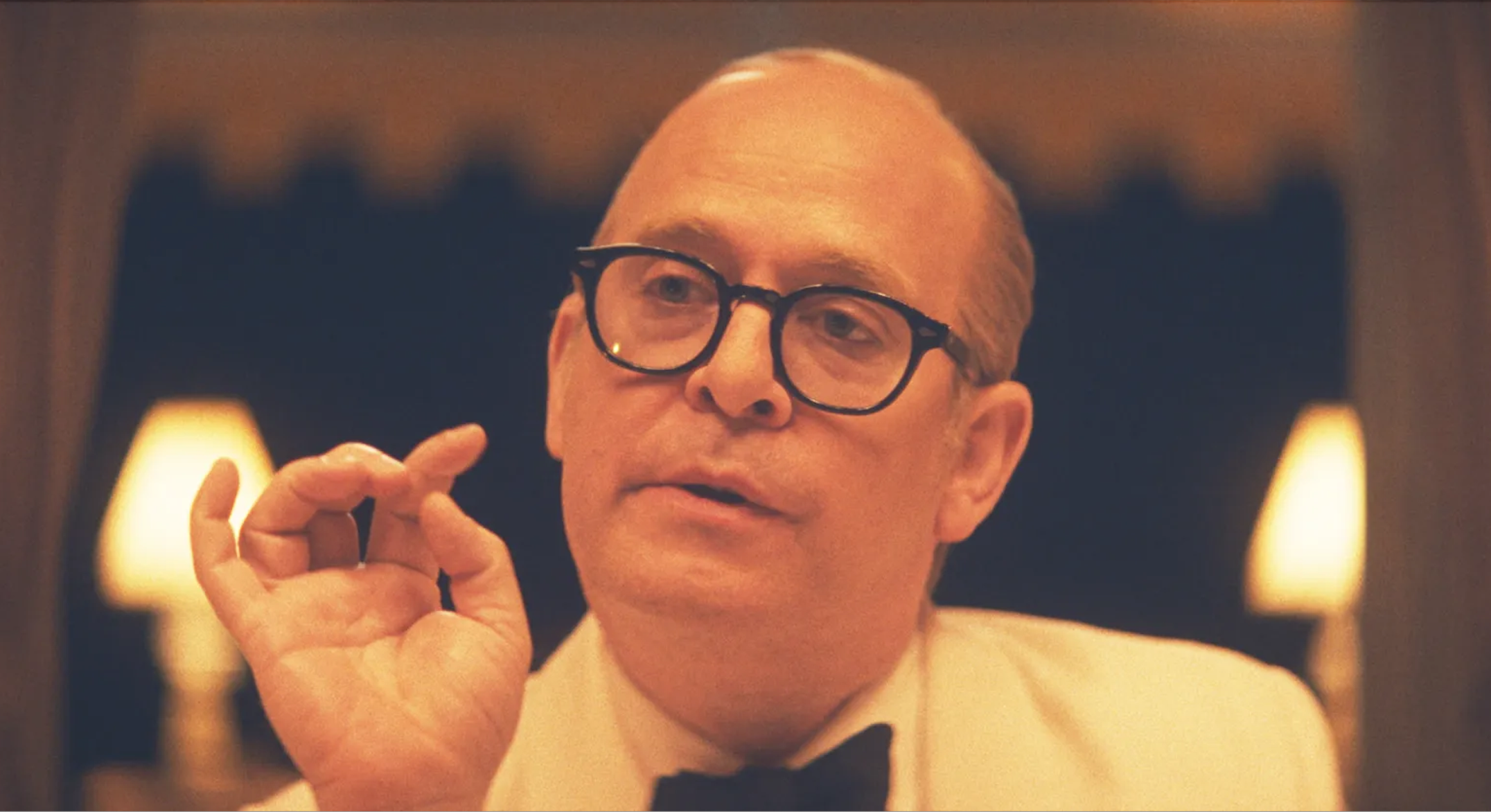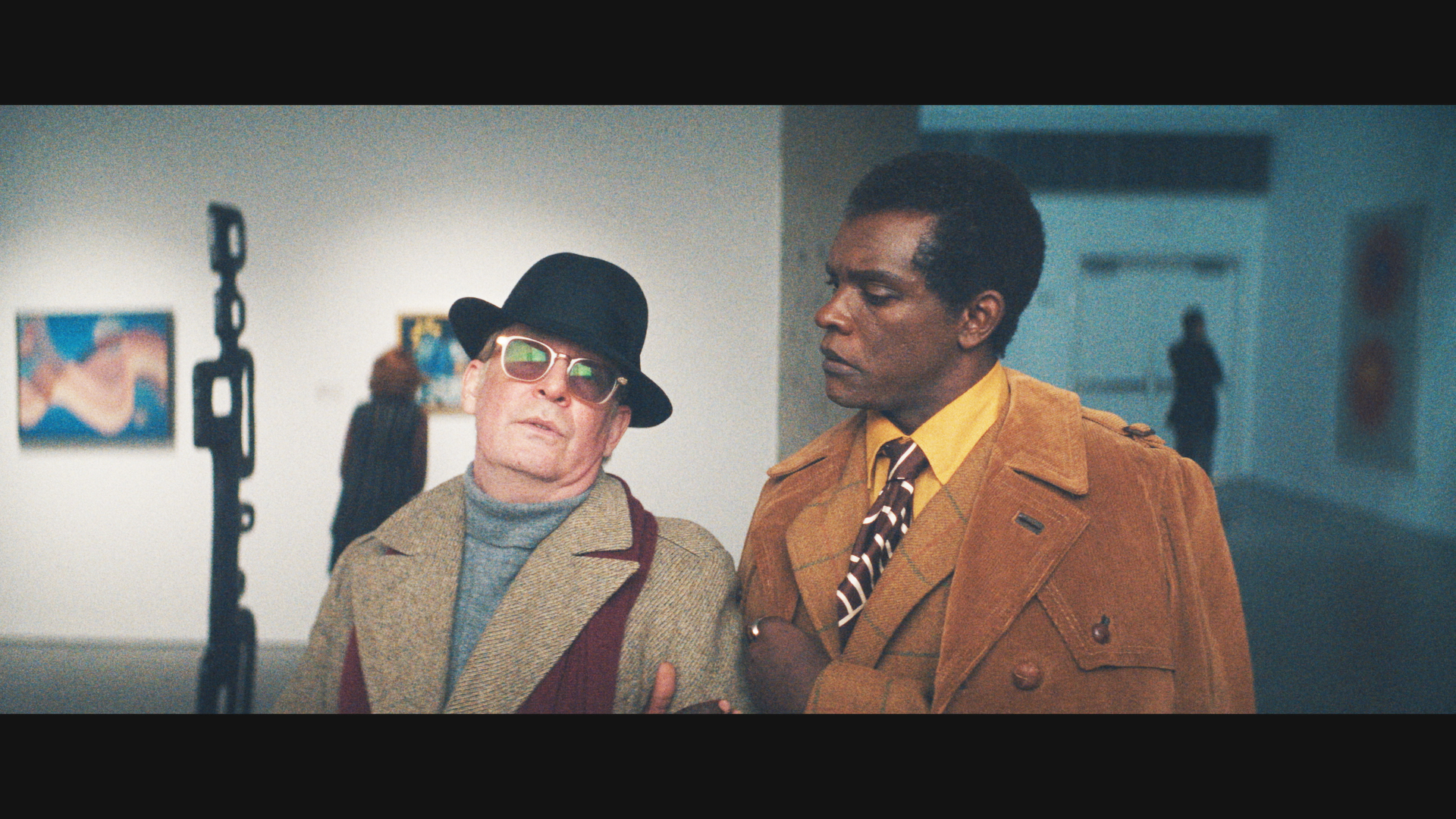
The Light and the Dark: Tom Hollander on Playing Truman Capote
“Once you smell how brilliant he was, you feel it's legitimate to show the roiling squalor of his demise.”
Everyone loves seeing Tom Hollander, the diminutive Brit with the caustic wit, pop up in things. Whether he’s playing Elizabeth Bennett’s excruciatingly dull clergyman suitor, Mr. Collins, in Pride and Prejudice; the ruthless chairman of the East India Trading Company, Lord Cutler Beckett, in the Pirates of the Caribbean franchise; or Quentin, a mysterious gay expat vacationing in Sicily in season two of The White Lotus, Hollander tends to steal scenes.
Now, in his highest profile role to date, Hollander has taken on the daunting challenge of depicting post-prime Truman Capote in the second installment of Ryan Murphy’s Feud. Set predominantly in the late 1970s (a decade on from his In Cold Blood pomp), Feud: Capote Vs. the Swans focuses on the wounding social exile, and subsequent descent into alcoholism, of the once-fêted author after he publishes a (very) thinly fictionalized account of the scandalous lives of his New York high society friends.
Hollander and I spoke over zoom about “late” Capote, embracing self-destruction, and playing drunken misanthropes.
*
Dan Sheehan: It’s a remarkable performance. Your Capote is charming and repulsive, endearing and pitiable, and, at times, in such a state of abject dissolution that it’s deeply uncomfortable to watch. What was your preparation like for this role, for this version of Truman Capote?
Tom Hollander: I relished the fact that it was “late” Capote. It’s a self-destructive tale, the darkest stuff, but it’s written with Ryan Murphy showmanship. We had Gus Van Sant, who’s no stranger to drug films, and we had Robbie [Jon Robin Baitz]’s amazing, poetical, funny, literary writing. The combination of those three creative forces was perfect for the story they were trying to tell. I was delighted to jump into it. I’ve also been around a lot of self-destructive people in my adult life.
I had a lovely childhood, but in my adult life there’s been plenty of darkness around addiction. In showbiz it’s hard to avoid. There are a lot of fascinating, creative, tortured people in the industry, and I’d been up close to that stuff enough to feel that I’d researched it sufficiently to have an idea of where to go in those scenes.
DS: Capote has been portrayed a number of times of screen, most notably by Philip Seymour Hoffman in Capote (which quite a few people saw) and Toby Jones in Infamous (which nobody saw), but these were depictions of Capote at a very different point in his life and career. Were you tempted to watch, or rewatch, either of those performances, or did you try to steer clear of previous representations of Capote?
TH: It’s more that I was tempted not to watch them, but I did. [laughs] I couldn’t do my job without seeing what had already been done, and seeing if there was any material left, as it were. Particularly with Philip Seymour Hoffman’s performance, because he was a genius of actor. But I was delighted to see that there was new territory to colonize in the story of Capote’s life that was not in those films. Robbie and Ryan had already realized that, obviously, and had already written it, so actually that work had been done. I just had to inhabit him.

DS: You’ve mentioned previously that reading Capote’s writing helped you “commit to his toxicity.” Can you talk a little bit about that?
TH: What I think I meant was, once you smell how brilliant he was, you feel it’s legitimate to show the roiling squalor of his demise. It’s not just an indulgence for the fun of showing a destructive drunk. Believing that he was truly brilliant allowed me to go to the dark place. It’s also perhaps easier to represent drunken self-destruction than it is to represent literary genius. It’s quite hard to say “ok, you’re a genius. Action!” Whereas if someone says “you’re a drunk on the way down. Action!” you sort of know what to do.
I suppose being a drunk is a physical thing whereas being a genius is a mental thing. This is getting a bit stream of consciousness now. It’s about opposites, the yin and the yang of it. The brilliance of the writing and the darkness of the self-destruction. The light and the dark. We spent a lot of time in the dark, and then, in the later episodes, Robbie started to put his foot on the gas of the literary stuff, the beauty of Capote’s writing.
There’s one very beautiful bit where Robbie writes a sort of pastiche Capote, which was just brilliant. It’s the eulogy Capote was planning to give at Babe Paley’s funeral before C. Z. Guest turns up to tell him that he can’t go, that he hasn’t been invited. Capote then reads what he was going to say, and it’s so good. It really makes you believe that Capote could have written it. If I was doing a physical, vocal impression—I don’t want to say “impression,” but on some level it is, it has to be—then Robbie was doing the same impression, but with the words. I know which I’d rather do, which would be scarier.
If you’re playing someone like Truman Capote, especially if you’re a Brit, you need to take it seriously. There’s a certain solemnity with which you need to approach the whole thing. So I suppose I felt that I needed to touch base with his writing and to kind of go “yes, I can see the sensitivity.” If I feel that, and respect it, then it’ll be easier somehow to jump into the extreme self-destruction of this story. But I couldn’t have done any of that without Robbie’s brilliant writing.

DS: You have now played Dylan Thomas, Wilkie Collins, George Etherege, T. S. Elliot, and Truman Capote. Have you got your eye on any other literary icons?
TH: [Thinks for a few beats] No. Somebody may suggest it, and then I’ll be thrilled, but none of that was intentional. There was a time when everyone wanted to play Bukowski, but I don’t think I could play Bukowski. Another drunken misanthrope. I loved playing Dylan Thomas, and actually Thomas has things in common with Truman Capote. Obviously. Not just being small, but the sense of lost promise, the sense of unfulfilled genius. Not that it was unfulfilled exactly, but that they could have done so much more if they’d just. stopped. drinking.
________________________
The season finale of FEUD: Capote Vs. The Swans airs tonight at 10:00 pm ET/PT on FX
Dan Sheehan
Dan Sheehan is the author of the novel Restless Souls (Ig Publishing) and Editor-in-Chief of Book Marks.



















